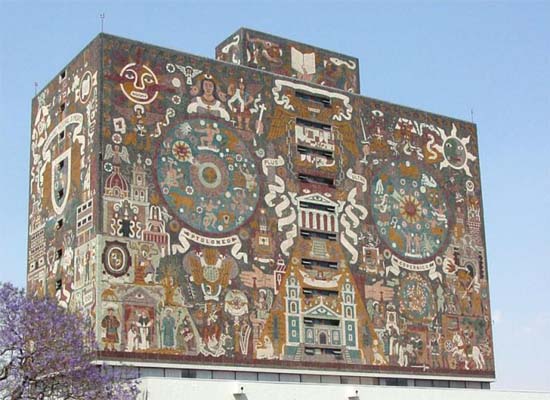
Mexico Accepts Peace Corps Workers
Mexico Accepts Peace Corps Workers
MARK STEVENSON
Associated Press
MEXICO CITY - Mexico has broken a decades-old tradition of rejecting U.S. aid workers, granting permission for the first group of U.S. Peace Corps volunteers ever to work here.
Mindful of national sensitivity over U.S. influence, though, the government plans to keep the group out of public view.
Still, for a country that has kicked out or criticized U.S. experts in the past - and for one touchy about being viewed as underdeveloped - it's a big change.
The first 15 volunteers, scheduled to arrive this summer, won't be performing the Peace Corps' usual tasks in construction, rural schools, clinics or farmer training. They will be tucked away in research centers to work on information technology, science and business development.
"This is not the typical (Peace Corps) program. These people are not going to be working out in the villages," said Efrain Aceves Pina, international affairs director for Mexico's National Science and Technology Council.
The Peace Corps is happy with Mexico's plan even though it is accustomed to more contact with everyday people, said agency spokeswoman Barbara Daly.
"The Peace Corps always works to integrate ourselves in the local culture," she said. "The volunteers live in the community and live with host families during the training."
Housing for the volunteers has not yet been decided.
After years of rejecting Peace Corps help, the government agreed to accept the program last year when U.S.-Mexican relations hit a low point over Mexico's lack of support for the war in Iraq.
Mexican officials insist the idea came up as a natural extension of existing scientific and technical cooperation programs. But many analysts think President Vicente Fox went along to try to smooth relations with President Bush.
"After the clash on Iraq, Fox is eager to please the United States," historian Lorenzo Meyer said. "He's trying to prove that he and Bush are the best of buddies."
Washington spends billions of dollars on military help, economic development and other aid programs elsewhere in Latin America, but Mexico gets next to nothing, apart from some small training programs for police and soldiers.
Even that can cause problems. News of a U.S. training program for the Mexican army made front-page headlines here in October, stirring such controversy that the U.S. Embassy issued a statement stressing that the total amount of aid was just $1.25 million - compared to U.S. outlays of about $700 million a year in the Andean countries of South America.
Mexico has rejected other U.S. aid programs aimed at persuading farmers to substitute legal food crops for illegal harvests like opium and marijuana, two illicit crops now widespread in some regions of Mexico.
"It's not that we have declined any aid out of spite," said Jose Santiago Vasconcelos, Mexico's top anti-drug prosecutor. "It's just that we think our sister nations (in Latin America) have a greater need for these programs, so out of solidarity we decided to let them have the scarce funding."
Meyer said the idea of accepting aid grates on his countrymen.
"Mexico has never wanted to accept aid," he said. "It's like accepting charity, a pittance."
Part of Mexico's hesitation comes from bad past experiences.
American anthropologist Oscar Lewis didn't mean to offend when he came to Mexico to interview a poor, problem-plagued Mexican family for his 1961 book "The Children of Sanchez." The book became a social science landmark, defining what came to be known as "the anthropology of poverty."
But it angered some Mexicans so much that the country's Society for Geography and Statistics filed a criminal complaint in 1965 accusing Sanchez of sedition, violating public morality and defaming Mexico.
Prosecutors dropped the case, but the feeling of insult didn't fade. In 1966, private publishers in Mexico put out a biting book about social problems in U.S. ghettos titled "Stories for Oscar Lewis."
Perhaps the most troubled American project was the Summer Institute of Linguistics, a group of researchers who were invited in the 1930s to work on improving literacy rates in Mexican Indian villages.
While they made great contributions in that field, the American linguists also helped sow the seeds of bloody divisions in traditionally Catholic Indian communities, by introducing Protestantism.
The linguists documented dozens of Indian languages and translated the Bible into those tongues. They set up medical services, agricultural training programs and even operated a jungle air service.
By the 1980s, however, the Americans - affiliated with a Protestant Bible-translation society - were being accused of being everything from missionaries to CIA agents. The government withdrew permission for the project, and most volunteers had been asked to leave by 1990.
